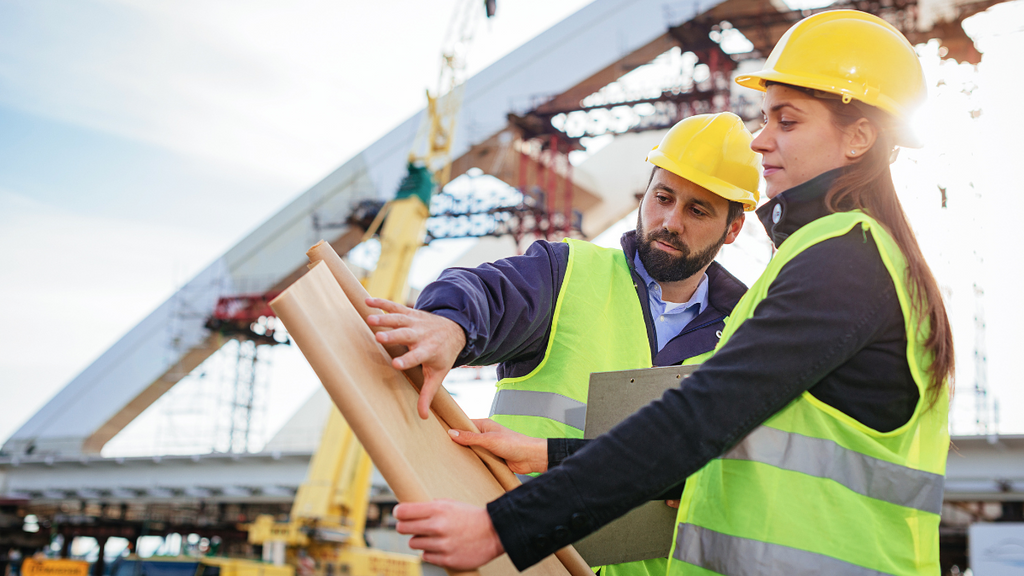Getting My Geotheta To Work

A geotechnical designer is a specialized civil designer who concentrates on the actions of dirt, rock, and other products found below the Planet's surface. They use clinical principles and engineering techniques to evaluate the homes and behavior of these products to support the risk-free and effective style, building, and maintenance of infrastructure tasks.
They perform site examinations, collect examples, execute laboratory tests, and evaluate information to examine the suitability of the ground for building and construction jobs - Consulting Engineers. Based on their searchings for, geotechnical designers offer suggestions for structure style, incline stability, maintaining structures, and mitigation of geotechnical dangers. They team up with other experts, such as designers, architectural engineers, and building groups, to ensure that geotechnical considerations are integrated into the total project design and implementation
By analyzing the actions and homes of dirt and rock, they can recognize prospective geotechnical dangers such as landslides, soil settlement, or incline instability. Their knowledge aids prevent failings or accidents that can endanger lives and building. Right here are some detailed obligations and obligations of a geotechnical designer: Site Investigation: Geotechnical engineers conduct site investigations to collect information on subsurface problems.
They translate the data to recognize the residential or commercial properties and habits of the dirt and rock, including their toughness, permeability, compaction qualities, and groundwater conditions. Geotechnical Analysis and Layout: Geotechnical engineers analyze the data gathered throughout site investigations to evaluate the security and suitability of the site for building jobs. They perform geotechnical computations and modeling to assess aspects such as bearing capacity, settlement, incline security, lateral planet pressures, and groundwater circulation.
The Best Strategy To Use For Geotheta
Structure Layout: Geotechnical designers play a vital role in making foundations that can securely support the desired structure. They examine the soil conditions and tons requirements to figure out the ideal foundation kind, such as shallow foundations (e.g., footings), deep structures (e.g (https://www.storeboard.com/geotheta)., piles), or specialized strategies like dirt renovation. They think about variables such as negotiation limits, birthing capability, and soil-structure interaction to establish optimum structure styles
They assess construction plans, monitor site activities, and carry out field examinations to confirm that the style referrals are complied with. If unpredicted geotechnical issues emerge, they examine the scenario and give recommendations for removal or modifications to the style. Risk Analysis and Mitigation: Geotechnical engineers assess geotechnical risks and threats associated with the project website, such as landslides, liquefaction, or soil erosion.

Collaboration and Communication: Geotechnical engineers work carefully with other specialists entailed in a task, such as architects, structural designers, and building and construction teams. Effective interaction and collaboration are necessary to incorporate geotechnical considerations into the general project layout and construction procedure. Geotechnical engineers supply technological knowledge, solution queries, and ensure that geotechnical needs are met.
7 Easy Facts About Geotheta Described
Here are some sorts of geotechnical designers: Foundation Engineer: Foundation engineers focus on developing and analyzing foundations for frameworks. They examine the dirt conditions, load demands, and site characteristics to determine one of the most proper structure type and design, such as shallow structures, deep foundations, or specialized strategies like pile structures.
They assess the aspects influencing slope stability, such as soil homes, groundwater conditions, and incline geometry, and establish methods to stop slope failings and minimize dangers. Quake Designer: Earthquake designers specialize in assessing and creating frameworks to stand up to seismic forces. They evaluate the seismic hazard of a site, assess dirt liquefaction possibility, and develop seismic style requirements to ensure the safety and security and durability of structures during earthquakes.
They do field testing, accumulate examples, and evaluate the collected information to define the dirt homes, geologic developments, and groundwater problems at a website. Geotechnical Instrumentation Engineer: Geotechnical instrumentation designers concentrate on surveillance and determining the behavior of soil, rock, and frameworks. They install and preserve instrumentation systems that keep an eye on elements such as soil negotiation, groundwater levels, slope motions, and structural variations to examine performance and supply early warnings of prospective issues.
Some Known Factual Statements About Geotheta
They often tend to be investigatory people, which implies they're intellectual, reflective, and investigative. They are interested, systematic, logical, analytical, and rational. Some of them are also social, implying they're kind, generous, participating, person, caring, useful, compassionate, skillful, and pleasant - Geotechnical Engineers.
In the workplace atmosphere, geotechnical designers make use of specialized software devices to execute computations, develop styles, and assess information. They prepare reports, evaluation project specs, interact with clients and employee, and coordinate project tasks. The workplace setup gives a conducive environment for study, evaluation, and collaboration with other professionals included in the project.
Geotheta Things To Know Before You Buy
They regularly go to job websites to carry out site examinations, examine geotechnical conditions, and collect information for analysis. These gos to entail traveling to various locations, in some cases in remote or challenging terrains. Geotechnical engineers might perform dirt tasting, conduct examinations, and display building and construction tasks to make certain that the geotechnical elements of the project are being implemented correctly.
Geotechnical engineers additionally function in specialized geotechnical labs. Geotechnical lab designers function extensively in these atmospheres, managing screening equipment, operating tools, and tape-recording information.
Comments on “Rumored Buzz on Geotheta”